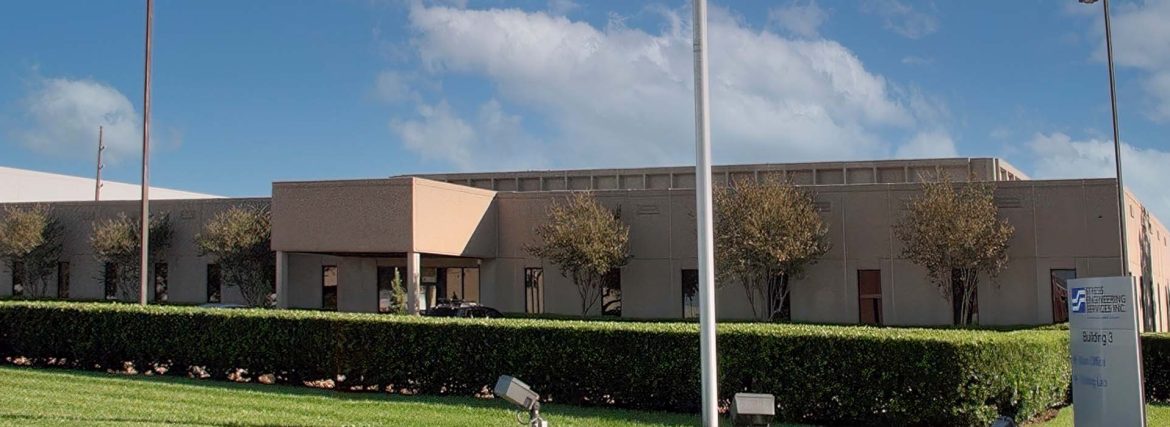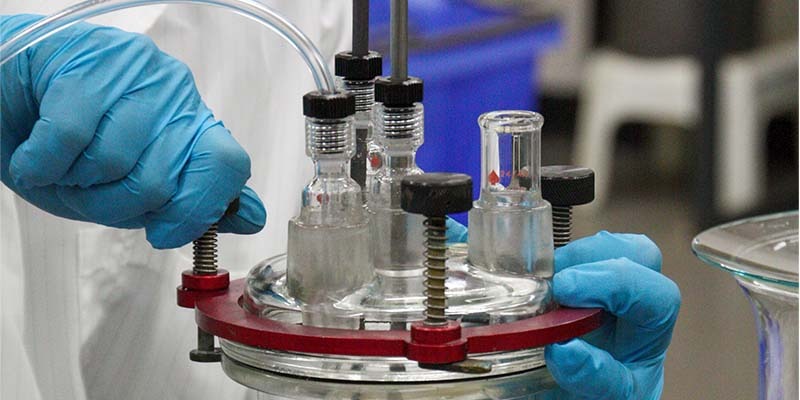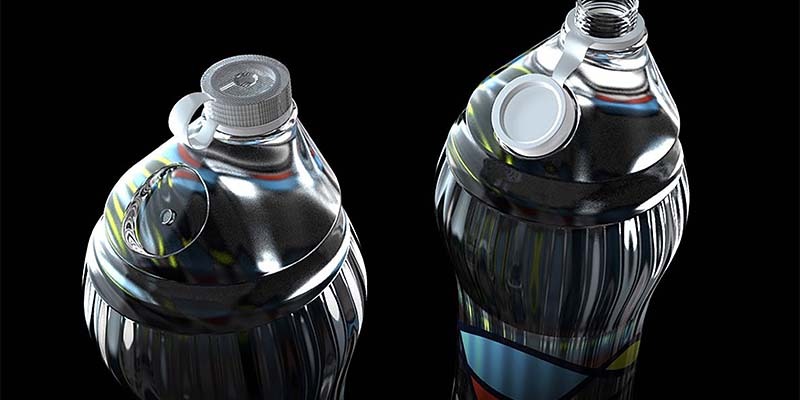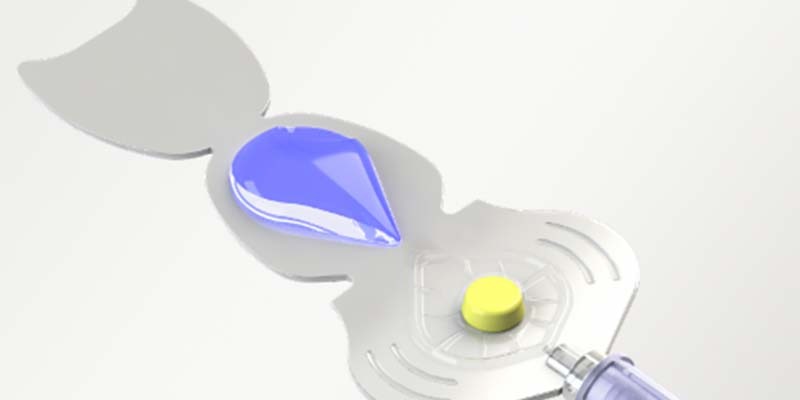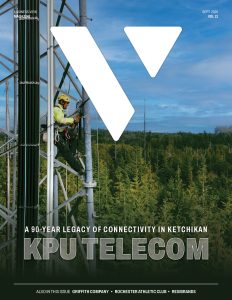Solving the World’s Toughest Problems
A Multi-Disciplinary Approach to Engineering Consulting
Stress Engineering is a versatile firm that, for decades, has defined itself by its ability to tackle the most complex problems in the engineering industry. For over 50 years, the firm has established itself as a leading player in an ever-evolving field.
Founded in 1972 by three Texas A&M graduates, the firm’s mission has always been to tackle the most complex problems by looking at them from every angle.
This is possible due to Stress Engineering’s abundance of professional expertise, as demonstrated by its team of engineers, the majority of whom have advanced degrees.
“We operate on the frontline of technology. If you look at our personnel, two-thirds of our engineering personnel have advanced degrees, master’s and Ph. D.s, and the reason for that is the nature of the problems that we tend to address. We tend to go after the more complex problems,” explains Senior Vice President Terry Lechinger.
In addition to its human intelligence, the company also leverages advanced technologies like artificial intelligence to improve various factors, like safety on offshore rigs and extending the operational longevity of older facilities.
Complementing that technology, earlier this year, the company obtained a CMMC certification, which places it within a smaller pool of companies with higher cybersecurity qualifications than the rest.
With all things considered, one of the most powerful drivers of Stress Engineering’s profitability is its employee ownership.
Since transitioning to a 100% ESOP, Stress Engineering has empowered its workforce with a true sense of ownership.
This unique model allows for a level of transparency in which employees gain access to key financial information, giving them a vested interest in the company’s fiscal health.
This motivates them to be frugal and share ideas because, as owners, they directly benefit from the company’s profitability.
Now, it’s time to gain even more insight about how this team of highly-skilled employee-owners continues to combine human ingenuity with cutting-edge technology to solve the world’s most challenging problems.
Pioneering Solutions for Modern Challenges
Stress Engineering can truly be viewed as a niche player in the engineering industry due to its focus on engineering consulting in the area of design, testing, and analysis.
The secret to the firm’s ability to handle such a wide range of complex work is undoubtedly the level of industry expertise that its employee-owners possess.
And it’s important to note that this expertise spans across several industries.
“We work across six major industries pretty extensively, and we work on problems with a multi-disciplinary approach. In other words, we will take a problem and try to look at it from the standpoint of an electrical engineer or a materials engineer, mechanical, civil, or whatever the required discipline might be to really get the best view of the problem and get the best solution,” Lechinger says.
The company’s footprint is strategically located to serve its key markets, with offices in Houston, Cincinnati, and Calgary.
Houston is an essential hub for the energy sector, while Cincinnati and the Midwest serve the consumer products and medical industries. A small office in California also provides support for the medical segment.
Out of the firm’s core industries, it has focused most heavily on the energy sector. However, its scope has expanded significantly over the decades to meet the changing needs of the modern world.
Historically, the energy sector, which includes upstream, midstream, and downstream components of the business, comprised about 80% of Stress Engineering’s business.
Today, that has shifted, with consumer products and medical device development now representing about 30-35% of the business, which, in combination with oil and gas, represents roughly 50-60% of the firm’s business.
Aerospace and defense, a newer segment for the company, is still small but is poised for significant growth.
“We started this venture in aerospace and defense in 2016. It really began to get traction in 2019. And it’s grown to where it’s now starting to have a good input into our P&L. We started solely in privatized space, and our goal is set right now on the Department of Defense,” Lechinger says.
Leading on the Sustainable Technology Front
Stress Engineering’s consulting work is at the forefront of technology, addressing critical challenges across all its sectors.
In the energy industry, a major area of interest is life extension for existing facilities.
With the last major build of US refineries in the late 60s and early 70s, operators are eager to avoid large-scale investments in new facilities and instead extend the lifespan of their current ones.
“When they’re designed, the regulators give these facilities a certain period of life. Once that has passed, they’ll have to apply for an extension of operation. What we do is: we’ll go in and look at the environment and the conditions that the facility withstood during its design life, and look at its condition. There are a number of documents involved; it’s a pretty prescribed method, but we go back to the regulators and apply for extended life on the facility,” Lechinger explains.
In the consumer world, the company is also working with some of the largest corporations to redesign packaging, focusing on recyclability.
The firm’s goal is to help these companies create packaging that is 100% curbside recyclable, a major focus for many manufacturers today.
Of course, with everything it’s doing, Stress Engineering also leverages advanced back-end technology to sharpen its solutions.
“What we’re trying to do is use the newest technology—AI, machine learning, etc—and give new-age answers to these problems. We want to help these operators understand how they can extend the life of their facilities. We want to help in aerospace and defense. The main question is how we can help in the new developments that they’re going to need and want,” Lechinger expresses.
For example, the firm has developed a system for offshore rigs that analyzes real-time environmental data (wave, wind, and current) based on a digital twin of the operation to advise operators on whether it’s safe to continue an operation or if they need to disconnect.
This involves extensive machine learning to process both actual and forecasted weather data, which has helped both prevent accidents and increase operational efficiency.
The firm applies similar AI and machine learning principles to its work in the packaging world as well. And while some projects prohibit the use of AI due to concerns about intellectual property, Stress Engineering applies it in areas where it is permitted.
A Vested Interest in the Future
A defining characteristic of Stress Engineering is its employee ownership model, an ESOP (Employee Stock Ownership Plan) that has evolved since the company’s inception.
From its origin, the company was employee-owned, initially structured with a limited number of partners who were offered stock as they progressed.
This model worked well for a long time, but created a “Have and Have Not” mentality between the partners and the rest of the company.
In 2005, the company began its transition to a formal ESOP, a move that would provide a better return for retiring partners and offer a better retirement vehicle for all employees.
About a year and a half ago, the company completed this process, becoming a 100% ESOP.
This move eliminated the old partnership structure and its associated quarterly dividend checks, leading to a restructuring of the company’s bonus scheme.
The ESOP model is now a significant part of the company’s recruiting program, a point of intrigue for potential hires who are often unfamiliar with the concept.
“The ESOP is definitely a plus, and I think we’re early enough in the process. People are intrigued by it, and some don’t understand the ESOP concept. But when we tell them, you’re an employee owner, that they understand,” Lechinger clarifies.
This sense of ownership goes deeper than just loyalty or autonomy; it gives employees a vested interest in the company’s success.
It allows for a level of transparency that is uncommon in most businesses. Employees are given access to information about the company’s profitability, sales numbers, and overall fiscal health, which gives them a sense of being at the heart of the company.
This motivates them to be frugal, save money, and share their ideas, because it is, after all, their company. They are all “partners.”
While it’s still early in this new phase of being a 100% ESOP, the model is proving to be a powerful tool for productivity and employee motivation.
Moving forward, Stress Engineering has a clear and ambitious vision for its future. Over the next five years, the company has set a lofty goal to grow by 50%.
A significant portion of this growth is expected to come from its aerospace and defense sector, which makes sense, as the firm plans to expand its presence from privatized space into the Department of Defense.
By the time that becomes a reality, Stress Engineering will already be well-positioned to capitalize on that opportunity, having received its CMMC certification, a cybersecurity and facility security requirement needed to work with federal agencies like the DoD.
This places the firm well ahead of the curve, as only a handful of companies have received this certification, which will be a major requirement in the coming years.
Stress Engineering’s growth has been built on a foundation of solving the most difficult problems.
Its commitment to continuously adapting to the needs of the market ensures that it will not only achieve its ambitious growth goals but will also continue to be a go-to partner for the most challenging engineering problems across multiple industries.
Its highly-qualified roster of experts and its growing operational tech-savviness combined will surely keep it in a pioneering position for years to come.
AT A GLANCE
Stress Engineering Services
What: A leading engineering consulting firm that has built a reputation for solving complex challenges across energy, consumer products, medical devices, aerospace, and defense.
Where: Headquartered in Houston, Texas, Stress Engineering operates across multiple strategic offices in Cincinnati, Calgary, and California.
Website: www.stress.com

Stress Engineering Services is a global leader in engineering services and solutions for a variety of industries. We provide comprehensive design, analysis and testing services with an unsurpassed level of engineering integrity and skill. Our engineering methods, advanced technology, innovative applications, and knowledgeable staff provide proven, quantifiable benefits to clients.
Stress Engineering Services, Inc. : https://www.stress.com
